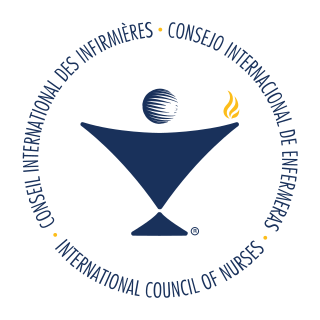
Socialism in New Zealand had little traction in early colonial New Zealand but developed as a political movement around the beginning of the 20th century. Much of socialism's early growth was found in the labour movement.

The Royal College of Nursing (RCN) is a registered trade union in the United Kingdom for those in the profession of nursing. It was founded in 1916, receiving its royal charter in 1928. Queen Elizabeth II was the patron until her death in 2022. The majority of members are registered nurses; however student nurses and healthcare assistants are also members. There is also a category of membership, at a reduced cost, for retired people.

The Australian Nursing and Midwifery Federation (ANMF) is the largest union in Australia, with 274,956 members in 2018. The union is run by nurses, midwives and assistants in nursing to advance the industrial, political and professional interests of its members.

The International Council of Nurses (ICN) is a federation of more than 130 national nurses associations. It was founded in 1899 and was the first international organization for health care professionals. It is headquartered in Geneva, Switzerland.

The Democratic Nursing Organisation of South Africa is a trade union in South Africa that describes itself as "a voluntary organisation for South African nurses and midwifery professionals".
The Canadian Federation of Nurses Unions is a trade union centre in Canada. The CFNU is a federation of provincial unions representing nurses, nurse practitioners, student nurses, and various allied health care workers. It advocates on a national level for issues related to nurses, patient care, the health care system, and working conditions. As of 2023, the CNFU represents nearly 250,000 nurses and student nurses across Canada, who are members of the nine provincial nurses unions and Canadian Nursing Students’ Association.
The New Zealand Council of Trade Unions is a national trade union centre in New Zealand. The NZCTU represents 360,000 workers, and is the largest democratic organisation in New Zealand.

The International Trade Union Confederation (ITUC) is the world's largest trade union federation.
The organizations listed below constitute the Canadian Labour Congress, the national federation of trade unions:
The Irish Nurses and Midwives Organisation is the largest Irish professional union for nurses and midwives with 40,000 members. It was founded in 1919 after World War I, when a group of Irish nurses and midwives had a meeting in Dublin to discuss the issues in promoting an improvement in wages and advocating for a standard to be set for the conduction of their duties in the medical profession. This new organisation focused on increasing awareness towards tackling problems of pay and pension. They encouraged participation in recognising these changes by recruiting new members and establishing a standard for nursing and midwifery practice through educational initiatives. They were originally known as the ‘Irish Nurses Union’. In the 1930s, they began to promote their campaigns internationally by becoming affiliated with the International Council of Nurses. To this day they are still active and are based at the Whitworth Building in North Brunswick, Dublin.
Australian People for Health, Education and Development Abroad (APHEDA), also known as Union Aid Abroad, is a non-government organisation of the Australian union movement. The non-government organisation was established in 1984 as the international aid agency of the Australian Council of Trade Unions. APHEDA was initiated in the pursuit of global justice through “stronger union and social movements, sustainable development programs, global solidarity and support in times of crisis” in Southeast Asia, the Pacific, the Middle East, South Africa and the Caribbean. APHEDA is also a registered charity with the Australian Charities and Not for Profits Commission.

The ICFTU Asia and Pacific Regional Organisation (APRO) was a regional organisation of the International Confederation of Free Trade Unions (ICFTU), representing trade unions from countries in Asia and Oceania.
The timeline of nursing history in Australia and New Zealand stretches from the 19th century to the present.
The history of nursing in the United Kingdom relates to the development of the profession since the 1850s. The history of nursing itself dates back to ancient history, when the sick were cared for in temples and places of worship. In the early Christian era, nursing in the United Kingdom was undertaken by certain women in the Christian Church, their services being extended to patients in their homes. These women had no real training by today's standards, but experience taught them valuable skills, especially in the use of herbs and folk drugs, and some gained fame as the physicians of their era. Remnants of the religious nature of nurses remains in Britain today, especially with the retention of the job title "Sister" for a senior female nurse.
The 2021 New Zealand nurses strike was a labour strike by nurses in New Zealand in June of 2021.
This page is based on this
Wikipedia article Text is available under the
CC BY-SA 4.0 license; additional terms may apply.
Images, videos and audio are available under their respective licenses.







